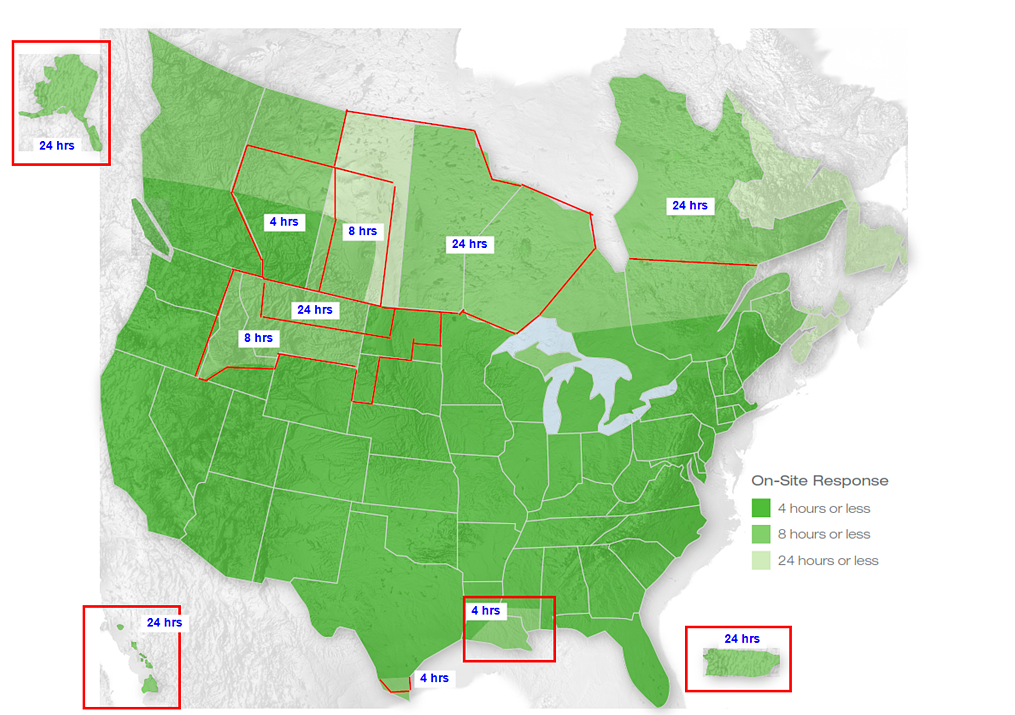Critical Factors for Best-in-Class Onsite Response Time
For this reason, all critical power service providers focus on whittling down “response time,” the time it takes for a qualified field service engineer (FSE) to arrive at your site during a critical power event. UPS service providers tout response times ranging from 24 hours, to 8 hours or less. At DC Group our emergency response time in areas throughout the U.S. and Canada is guaranteed at 4 hours or less, and last year we averaged just 2.35 hours from our door to yours.
However, getting someone there quickly is just a small part of the equation. It’s important to consider the hidden factors — and pitfalls — of onsite response.

The FSE is here, but where are the parts? The prompt arrival of your field service engineer is half the battle; service is only as good as the parts network backing up your FSE. If the parts are hard to find or obsolete, waiting for HQ to call around and order parts can add crucial lag time.
That is why DC Group has invested in the largest OEM-discontinued and rare UPS parts inventory in the industry. Our massive inventory, together with our coordinated parts hubs throughout North America, allows our FSEs to arrive with the correct parts, which are all carefully and regularly pre-tested at our state-of-the-art facility before dispatch. If you have a contract for preventive maintenance with DC Group, we keep a detailed database of your equipment, allowing us to proactively stock everything we need for maintenance and emergency service.
The FSE is here, but is out of his/her league. We’ve established that your service is going to be as good (and as speedy) as your provider’s parts network. But let’s not overlook the obvious: It’s also going to depend on the skill level of the engineer that shows up. We’ve invested in the most experienced group of field service engineers working in critical infrastructure. In fact, DC Group has more OEM and military engineers than any other independent service provider. We employ our engineers (vs. sub-contract), and train them on all makes and models of equipment from the 1980s to today’s units. Training is held at our state-of-the-art training facility in Minneapolis. This training is refreshed regularly as technology and equipment evolves.
The FSE was just here. Now s/he’s here again! You want your UPS fixed, but it needs to be fixed right. A DC Group engineer doesn’t just fix your equipment, they diagnose ongoing issues and prepare a proactive plan so that you won’t be in this situation again. Our preventive maintenance services (PM) have saved our clients hundreds of thousands of dollars. In one instance, our planning cut downtime expense so significantly, the client decided to roll out the PM plan globally to its critical infrastructure at sites around the world.
If any of these factors (parts, access, or experience and knowledge) are compromised, promises of blazing-fast on-site response time don’t mean very much. So be sure to ask questions and understand what you’re getting when you sign up for service. Of course, we’re here to answer any questions you have. And if you ever do have an emergency, count on us 24/7. We’ll be there in no time, with everything you need.
